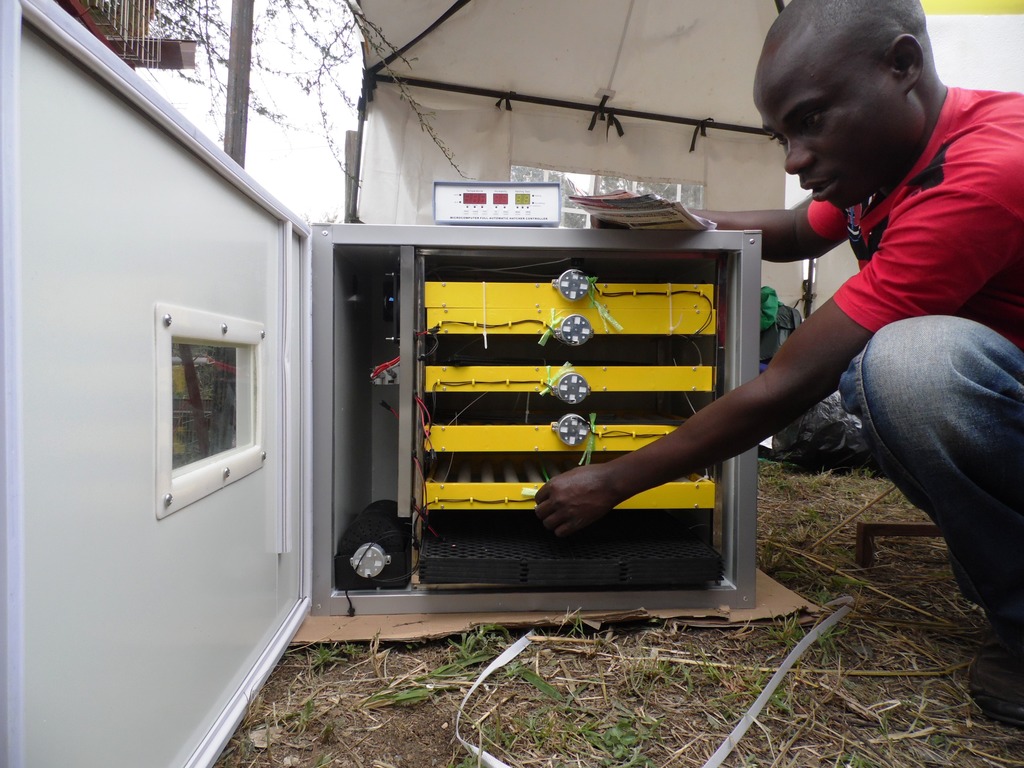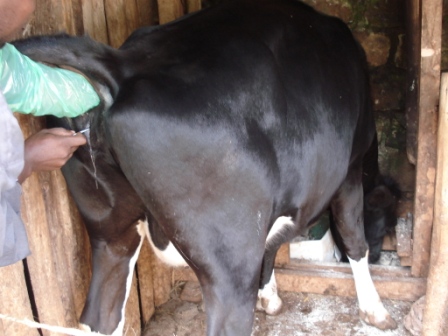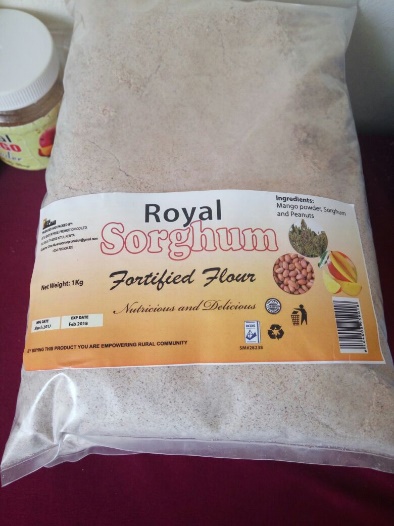The high cost of the incubators and electricity bills drove Godfrey Ng’ang’a into making solar powered machine for himself and other farmers.
The Kiambu County farmer bought his first two machines from South Africa and China with the hope of getting cost-saving and efficient equipment than those sold locally.
RELATED STORY: Solar incubator saves farmers when power outages occur
Although the South Africa made incubator, which he bought at Sh140,000, was efficient, its power consumption was inhibiting; it required 45kwatts per day. That could cost him about Sh11,000 for 21 days.
This farmer, who comes from Kikuyu town, was tired of the imported incubators after the second one he bought from China failed efficiency test.
“These two factors drove me into making my own incubators to hatch and raise local breed chicken, commonly called kienyeji,” Ng’ang’a said.
The comparison of the two incubators in materials and technology gave Ng’ang’a an idea of making incubators that use solar energy to reduce his expenditure on electricity.
With a galvanized aluminium metal sheet, turpentine, transparent glass, nails, rivets, among other materials, the farmer comes up with the incubator, which is powered by solar harnessed from the sun.
RELATED STORY: Fact Sheet: How to make poultry money using incubators
Kenya lies within the tropics, therefore, it receives sunlight all year round. But the converters and batteries store enough energy to run the incubator even when it is cloudy.
An incubator of 700 eggs capacity costs him between Sh40,000 and Sh45,000 in materials. He sells such a machine at Sh70,000.
A 4,000 egg capacity incubator costs him close to Sh200,000, but he sells it at Sh350,000.
“I work on orders from farmers or brokers. Within a month I can make three incubators depending on capacity and timeline. I offer them one year warrant,” he said.
RELATED STORY: Kerosene incubator helps farmer crack poultry agribusiness
In his agribusiness side, the farmer hatches between 500 and 1,000 kienyeji chicks weekly. Kienyeji chicks, he says, are more on demand from his customers.
Apart from the eggs he gets from the 300 chicken at his farm in Wangige, Ng’ang’a buys more to meet the orders.
He sells one day old chick at Sh50, one week at Sh70, two weeks Sh80, three weeks Sh120 and one month at Sh200.
“When I do not have immediate orders, the chicks are expensive to maintain. They need close monitoring and consistent feeds to remain healthy awaiting the purchase,” he said.
RELATED STORY: Kenyan youth access quarter a million shillings for egg incubators
The farmer has four incubators with a capacity of 1050. With good hatching preparation of the eggs and management through the 21-day period, he gets more than 70 per cent results.
The use of solar incubators has enabled him cut production costs.
Kienyeji chicken and other improved varieties are popular in urban areas like Nairobi they fetch more than double the cost of broilers.
A two kilogramme live chicken costs between Sh800 and Sh1,000 while a cock can reach Sh1,400 depending on its weight.
Ng'ang'a can be reached on +54721612771
Write comment (4 Comments)


















